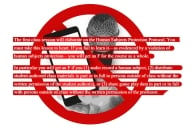You have /5 articles left.
Sign up for a free account or log in.
VANCOUVER -- More than 20 years ago, the literary scholar Gerald Graff responded to the culture wars by encouraging professors to "teach the conflict," and to infuse their courses and writings with the very subjects that were being contested by pundits and other scholars.
He was cited here Thursday at a session on "critical university studies" at the annual meeting of the Modern Language Association. In many ways, speakers here said, critical university studies is a next generation of teaching the conflict. Jeffrey J. Williams, professor of English and of literary and cultural studies at Carnegie Mellon University, is generally credited with the term "critical university studies," which is about to be solidified in a new book series by Johns Hopkins University Press.
Introducing the panel here, Williams said that he viewed the field as "criticism that challenges the corporatization of the university," as writing, research and teaching that pushed back against the "neoliberal anti-humanism" that dominates public policy on higher education.
To those looking for signs of the crisis in the humanities, there was one here: The panel's respondent, a graduate student, had to call off his trip when he couldn't come up with the money to attend.
But the session was more optimistic than many discussions at recent MLA meetings about the state of the humanities. The professors spoke with great pride about teaching, connecting with students, and helping undergraduates navigate an economic era that is challenging for those interested in writing and literature.
Jessica Yood, an English professor at Lehman College of the City University of New York, talked about the importance of teaching first-year writing. While "argument and critique" are a dominant form of critical university studies, she said, other methodologies are also appropriate. She said cultural studies, writing studies and education are also parts of the field.
Yood described how she spent her last sabbatical enrolled in and writing about first-year writing instruction at her college -- just as it was about to change in CUNY's controversial Pathways program. Yood said she worried that Pathways -- designed, she said, with the worthy goal of helping students transfer from two-year to four-year institutions -- was "diminishing" freshman writing, by focusing on "competencies" instead of the experience of learning to communicate.
Breaking from traditional panel format, Yood handed out index cards and asked the attendees to write some thoughts, on the spot, about the role of introductory composition. While Yood admitted that "forced participation at academic conferences can be cringe-worthy," she reminded the audience that this sort of quick writing in response to a prompt, and careful review of and discussion of responses, is a lot of what goes on the introductory composition classroom.
This "presentist" writing, as she called it, is vital, Yood said, for students to learn and grow, and it shouldn't be set aside in the interest of speed to completion. So by teaching students not only to write, but to value the process of learning composition, professors can advance critical university studies.
A Liberal Arts College Perspective
Lisa Fluet, assistant professor of English at the College of the Holy Cross, described how working at a small liberal arts college might seem like ground that is protected from the trends that so many in academe decry. She noted that recent critiques of higher education -- the documentary "Ivory Tower" and the book Excellent Sheep, two of the examples she cited -- offer praise for some small liberal arts colleges for continuing to focus on a personalized view of teaching and learning, and for not defining success in purely financial terms.
She said that's true, but only in part. The true "paradox" of liberal arts education for the non-wealthy today, Fluet said, is that they benefit from a curriculum "that is beyond market demands," while they must borrow so much money that they need to focus constantly on how much money they will earn after they graduate.
One sign of this, she said, is pre-med students who don't seem to know why they want to become doctors, but who see declaring themselves pre-med as a sign (to themselves and their parents) that they have a plan that will work financially.
Fluet talked about how some students in literature courses talk of "feeling guilty" for taking them, even at a place like Holy Cross, where the liberal arts are central.
To promote the study of literature in this environment and to recognize students' worries, Fluet created a course called "Narrative and the Idea of a Career," in which students read Horatio Alger, A Portrait of the Artist as a Young Man, The Big Sleep and dystopian works such as The Hunger Games.
The course looks at career as an idea beyond job, and the way careers reflect identity. The course creates a context, Fluet said, for students to think about their futures and read literature.
Optimism Everywhere Except Academe
Christopher Newfield, professor of literature and American studies at the University of California at Santa Barbara, is also teaching a course inspired by the challenges facing students. His course is on "being an English major after graduation" and students discuss the skills they have learned (from courses and life), the kinds of careers they want, and how they might get such jobs.
While Newfield was sharply critical of the withdrawal of state funds from public colleges, a subject on which he has written extensively, he said that the tide could be about to turn for the humanities.
He noted that digital teaching has allowed faculty members to rethink their courses, that students flock to humanities subjects, that there is a "massive explosion of demand for information on everything that is happening in society," and that writing in all languages and all platforms is growing exponentially and attracting new audiences.
Institutions in society reflect these shifts, he said. Much of The New York Times has become a "weird online university" explaining concepts as much as the news, websites such as Vox pride themselves on teaching people about complicated subjects, small websites have been created by academics looking for new forms of communication, and so forth.
Humanities professors need to rebel against the notion that all trends (and all jobs) favor science and technology graduates. The students Newfield sees at Santa Barbara want jobs, broadly defined, dealing with culture and ideas. And, citing the various societal trends he discussed, Newfield said that there are jobs available to his English major graduates. Part of the critique of the university, he said, must be to ask why budgets and priorities always seem to punish humanities departments when they are in fact popular and a viable path for students to prepare themselves for the future.
Newfield said now is the time for humanities professors, as part of critical university studies, to look at what's going on the world, and contrast those trends with the prevailing attitudes of administrators. These elements in society have "victory written on them" for the humanities, he said. They suggested "a much brighter future than we feel in our institutional housing," he added.








